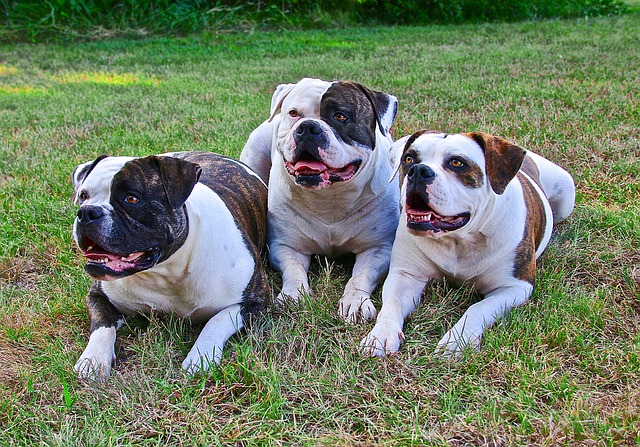Having a dog is a joyful and fulfilling experience, but sometimes our furry friends can get into unexpected trouble. One common issue many dog owners face is when their canine companion decides to snack on a sanitary pad.
While it may seem irritating and gross, addressing the situation promptly is essential to ensure your dog’s health and safety.
- If your dog eats sanitary pads, it is crucial to contact your veterinarian immediately.
- Consuming sanitary pads can result in serious complications for your dog, such as gastrointestinal obstruction.
- Some symptoms to watch out for include vomiting, diarrhea, abdominal pain, loss of appetite, lethargy, and difficulty passing stools.
- Prompt veterinary assistance is necessary to ensure your dog’s well-being and to address any potential health issues.
In this comprehensive guide, we’ll discuss the potential dangers, steps to take when your dog eats sanitary pads, and preventive measures to avoid such incidents.
Why Dogs Eat Sanitary Pads?
Dogs are naturally curious creatures and may eat things that they shouldn’t. With their appealing scent and texture, sanitary pads can attract dogs, especially when left within their reach.
Some common reasons dogs eat sanitary pads include boredom, separation anxiety, attention-seeking behavior, or simply mistaking them for food.
It’s important to remember that dogs are different, and their motivations for such behavior vary.
Are Dogs Attracted To Menstrual Blood?
Yes, dogs can be attracted to human menstrual blood because they have a strong sense of smell and can detect the pheromones and hormones produced by women during menstruation. The scent of menstrual blood can be intriguing to dogs and they may be curious to investigate or lick the area.
However, it’s important to note that dogs should not be allowed to lick or consume menstrual blood as it can be potentially harmful to their health. Menstrual blood can contain harmful bacteria and viruses that can cause infections in dogs.
Additionally, if a dog ingests a tampon or pad, it can cause blockages in their digestive system, which can be life-threatening. It’s important to keep menstrual products out of reach of dogs and to monitor their behavior around menstruating individuals
What to Do When Your Dog Eats Sanitary Pads?
If you discover your dog consuming a sanitary pad or have reason to believe that they have done so. It is crucial to maintain a composed demeanor and promptly address the situation. First, do not attempt to pull the sanitary pad out of your dog’s mouth, as this can cause harm or discomfort. Instead, carefully observe your dog for signs of distress or discomfort and contact your vet immediately.

Potential Dangers
While dismissing this incident as harmless might be tempting, it’s crucial to understand the potential dangers associated with a dog ingesting a sanitary pad.
The absorbent material can expand in their stomach, causing blockages or obstructions.
In severe cases, this can lead to life-threatening consequences such as gastrointestinal tears, internal bleeding, or even death if not promptly addressed.
Inducing Vomiting (Only if Instructed by a Vet)
Before attempting to induce vomiting, it’s crucial to consult a veterinarian or a pet poison control hotline. They can provide professional advice based on your dog’s specific circumstances.
Inducing vomiting may be recommended to remove the foreign object from your pet’s stomach. However, this should only be done under professional guidance to avoid causing harm or exacerbating the situation.
Signs of a Serious Medical Emergency
While most cases of dogs ingesting sanitary pads can be managed with proper care and veterinary assistance, there are instances where it becomes a serious medical emergency.
Watch out for signs such as persistent vomiting, severe abdominal pain, bloating, difficulty breathing, or signs of distress.

Contacting Your Veterinarian
Regardless of whether your canine shows immediate signs of distress, it’s recommended to contact your veterinarian as soon as possible. Describe the situation and follow their instructions carefully.
They may ask for information regarding your puppy size, breed, the size and material of the sanitary pad, and the time of ingestion to determine the best course of action.
Diagnostic Tests and Treatment
Upon visiting the veterinarian, they will thoroughly examine your furry friend. They may perform diagnostic tests such as X-rays or ultrasounds to assess the location and severity of the obstruction. The treatment plan will vary based on the specific case.
Still, it may include medications to reduce inflammation or discomfort, laxatives to help pass the sanitary pad, or in some cases, surgical intervention if the obstruction is severe or the dog’s condition worsens.
Surgical Intervention
Surgery may be necessary in certain situations where the sanitary pad is causing a complete blockage or if it has caused significant damage to the dog’s digestive system.
The veterinarian will assess the need for surgery based on the dog’s condition and the results of diagnostic tests. The surgical intervention aims to remove the obstructing object and repair any damage to the gastrointestinal tract, ensuring the dog’s recovery and well-being.

Preventive Measures
- Taking proactive measures is always preferable to dealing with the consequences, and implementing preventive steps can help prevent dogs from consuming sanitary pads.
- Ensure that used sanitary pads are disposed of in a lidded trash bin that is securely closed and out of your dog’s reach.
- If you have a dog that tends to explore the bathroom trash, consider keeping the bathroom door closed or installing a childproof latch to prevent access.
- When your dog is in areas where sanitary pads may be present, such as bathrooms or bedrooms, keep a close eye on them to intervene if necessary.
- Training your dog to respond to commands like “leave it” or “drop it” can be highly beneficial in redirecting their focus away from potentially dangerous objects.
- Provide your dog with plenty of toys, chew bones, and mental stimulation to keep them engaged and less likely to resort to destructive behaviors.
- If your dog’s behavior persists or shows signs of separation anxiety or boredom, consult a professional dog trainer or behaviorist for guidance on addressing underlying behavioral issues.
You May Also Like To Read:
My Final Thoughts
What to Do When Your Dog Eats Sanitary Pads? While it can be alarming and concerning when your dog eats a sanitary pad, it’s essential to remain calm and take appropriate action.
Promptly contacting your veterinarian, following their instructions, and monitoring your dog’s behavior is crucial to ensuring their well-being.
By implementing preventive measures and ensuring a safe environment for your dog, you can significantly reduce such incidents occurring in the future.



